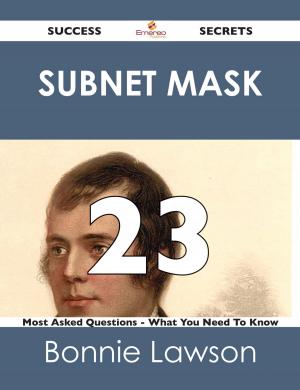Plato and the Other Companions of Sokrates, 3rd ed. Volume II (of 4) - The Original Classic Edition
Nonfiction, Reference & Language, Reference, Fiction & Literature| Author: | George Grote | ISBN: | 9781486447725 |
| Publisher: | Emereo Publishing | Publication: | March 18, 2013 |
| Imprint: | Emereo Publishing | Language: | English |
| Author: | George Grote |
| ISBN: | 9781486447725 |
| Publisher: | Emereo Publishing |
| Publication: | March 18, 2013 |
| Imprint: | Emereo Publishing |
| Language: | English |
Finally available, a high quality book of the original classic edition of Plato and the Other Companions of Sokrates, 3rd ed. Volume II (of 4). It was previously published by other bona fide publishers, and is now, after many years, back in print.
This is a new and freshly published edition of this culturally important work by George Grote, which is now, at last, again available to you.
Get the PDF and EPUB NOW as well. Included in your purchase you have Plato and the Other Companions of Sokrates, 3rd ed. Volume II (of 4) in EPUB AND PDF format to read on any tablet, eReader, desktop, laptop or smartphone simultaneous - Get it NOW.
Enjoy this classic work today. These selected paragraphs distill the contents and give you a quick look inside Plato and the Other Companions of Sokrates, 3rd ed. Volume II (of 4):
Look inside the book:
Admitting, first, that an act which is good, honourable, just, expedient, &c., considered in one aspect or in reference to some of its conditions — may be at the same time bad, dishonourable, unjust, considered in another aspect or in reference to other conditions; Sokrates nevertheless brings his respondent to admit, that every act, in so far as it is just and honourable, is also good and expedient.10 And he contends farther, that whoever acts honourably, does well: now every man who does well, becomes happy, or secures good things thereby: therefore8 the just, the honourable, and the good or expedient, coincide.11 The argument, whereby this conclusion is here established, is pointed out by Heindorf, Stallbaum, and Steinhart, as not merely inconclusive, but as mere verbal equivocation and sophistry — the like of which, however, we find elsewhere in Plato.12 ...Sokrates in his conversation with the youthful Euthydemus (in the Xenophontic Memorabilia) maintains, that of two persons, each of whom deceives his friends in a manner to produce mischief, the one who does so wilfully is not so unjust as the one who does so unwillingly.73 Euthydemus (like Hippias in this dialogue) maintains the opposite, but is refuted by Sokrates; who argues that justice is a matter to be learnt and known like letters; that the lettered man, who has learnt and knows letters, can write wrongly when he chooses, but never writes wrongly unless he chooses — while it is only the unlettered man who writes wrongly unwillingly and without intending it: that in like manner the just man, he that has learnt and knows justice, never commits injustice unless when he intends it — while the unjust man, who has not learnt and does not know justice, commits injustice whether he will or not. ...But this is shown by means of the following assumptions, which not only those whom Plato here calls the “very clever Disputants,”35 but Sokrates himself at other times, would have called in question, viz.: “That bad men cannot be friends to each other — that men like to each 189other (therefore good men as well as bad) can be of no use to each other, and therefore there can be no basis of friendship between them — that the good man is self-sufficing, stands in need of no one, and therefore will not love any one.”
About George Grote, the Author:
His father, another George, married (1793) Selina, daughter of Henry Peckwell (1747–1787), minister of Selina, Countess of Huntingdon's chapel in Westminster, and his wife Bella Blosset (descended from a Huguenot officer Salomon Blosset de Loche who left the Dauphiné on the revocation of the Edict of Nantes), and had one daughter and ten sons, of whom George was the eldest. ...In April 1822 he published in the Morning Chronicle a letter against George Canning's attack on Lord John Russell, and edited, or rather re-wrote, some discursive papers of Bentham, which he published under the title Analysis of the Influence of Natural Religion on the Temporal Happiness of Mankind by Philip Beauchamp (1822).
Finally available, a high quality book of the original classic edition of Plato and the Other Companions of Sokrates, 3rd ed. Volume II (of 4). It was previously published by other bona fide publishers, and is now, after many years, back in print.
This is a new and freshly published edition of this culturally important work by George Grote, which is now, at last, again available to you.
Get the PDF and EPUB NOW as well. Included in your purchase you have Plato and the Other Companions of Sokrates, 3rd ed. Volume II (of 4) in EPUB AND PDF format to read on any tablet, eReader, desktop, laptop or smartphone simultaneous - Get it NOW.
Enjoy this classic work today. These selected paragraphs distill the contents and give you a quick look inside Plato and the Other Companions of Sokrates, 3rd ed. Volume II (of 4):
Look inside the book:
Admitting, first, that an act which is good, honourable, just, expedient, &c., considered in one aspect or in reference to some of its conditions — may be at the same time bad, dishonourable, unjust, considered in another aspect or in reference to other conditions; Sokrates nevertheless brings his respondent to admit, that every act, in so far as it is just and honourable, is also good and expedient.10 And he contends farther, that whoever acts honourably, does well: now every man who does well, becomes happy, or secures good things thereby: therefore8 the just, the honourable, and the good or expedient, coincide.11 The argument, whereby this conclusion is here established, is pointed out by Heindorf, Stallbaum, and Steinhart, as not merely inconclusive, but as mere verbal equivocation and sophistry — the like of which, however, we find elsewhere in Plato.12 ...Sokrates in his conversation with the youthful Euthydemus (in the Xenophontic Memorabilia) maintains, that of two persons, each of whom deceives his friends in a manner to produce mischief, the one who does so wilfully is not so unjust as the one who does so unwillingly.73 Euthydemus (like Hippias in this dialogue) maintains the opposite, but is refuted by Sokrates; who argues that justice is a matter to be learnt and known like letters; that the lettered man, who has learnt and knows letters, can write wrongly when he chooses, but never writes wrongly unless he chooses — while it is only the unlettered man who writes wrongly unwillingly and without intending it: that in like manner the just man, he that has learnt and knows justice, never commits injustice unless when he intends it — while the unjust man, who has not learnt and does not know justice, commits injustice whether he will or not. ...But this is shown by means of the following assumptions, which not only those whom Plato here calls the “very clever Disputants,”35 but Sokrates himself at other times, would have called in question, viz.: “That bad men cannot be friends to each other — that men like to each 189other (therefore good men as well as bad) can be of no use to each other, and therefore there can be no basis of friendship between them — that the good man is self-sufficing, stands in need of no one, and therefore will not love any one.”
About George Grote, the Author:
His father, another George, married (1793) Selina, daughter of Henry Peckwell (1747–1787), minister of Selina, Countess of Huntingdon's chapel in Westminster, and his wife Bella Blosset (descended from a Huguenot officer Salomon Blosset de Loche who left the Dauphiné on the revocation of the Edict of Nantes), and had one daughter and ten sons, of whom George was the eldest. ...In April 1822 he published in the Morning Chronicle a letter against George Canning's attack on Lord John Russell, and edited, or rather re-wrote, some discursive papers of Bentham, which he published under the title Analysis of the Influence of Natural Religion on the Temporal Happiness of Mankind by Philip Beauchamp (1822).















